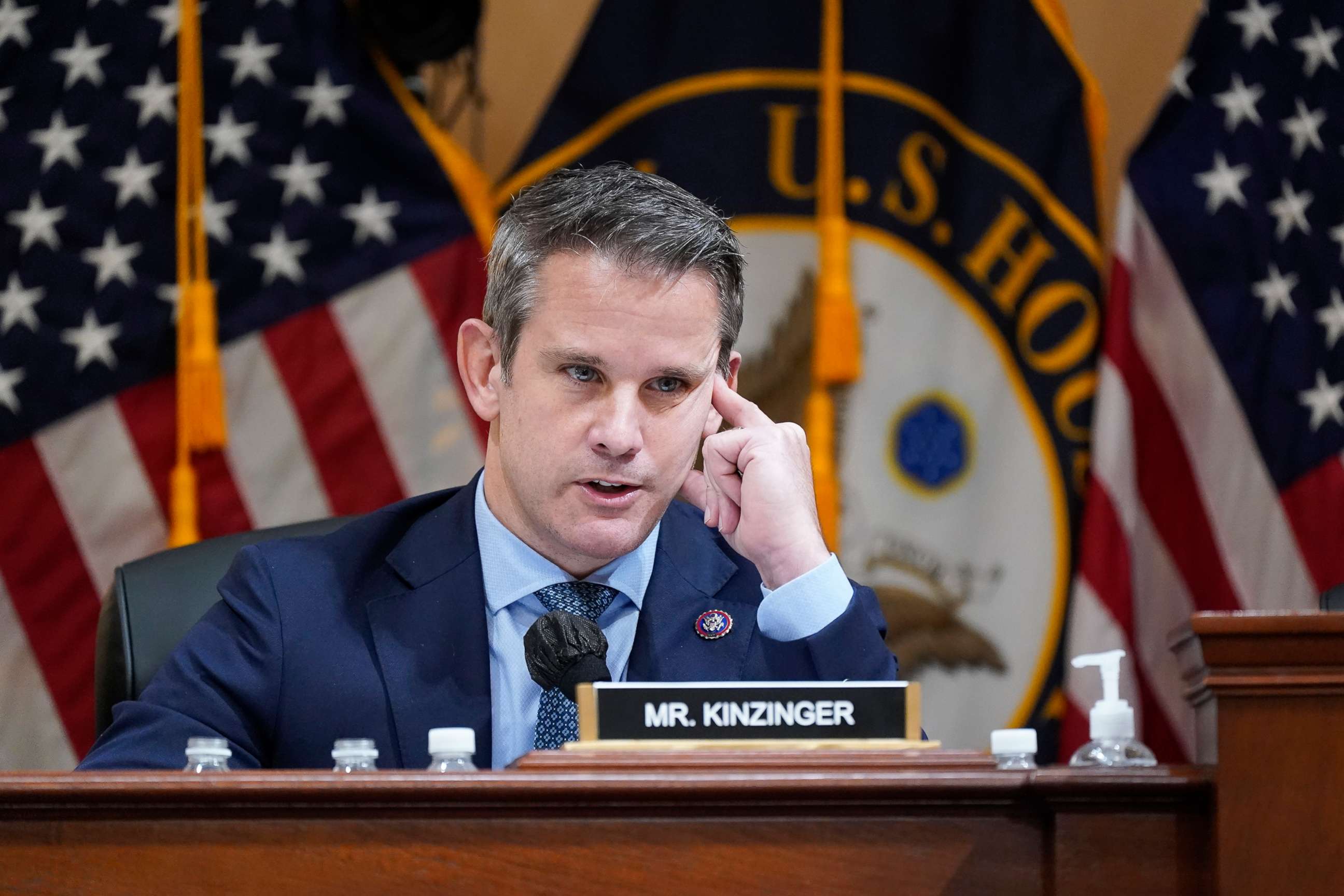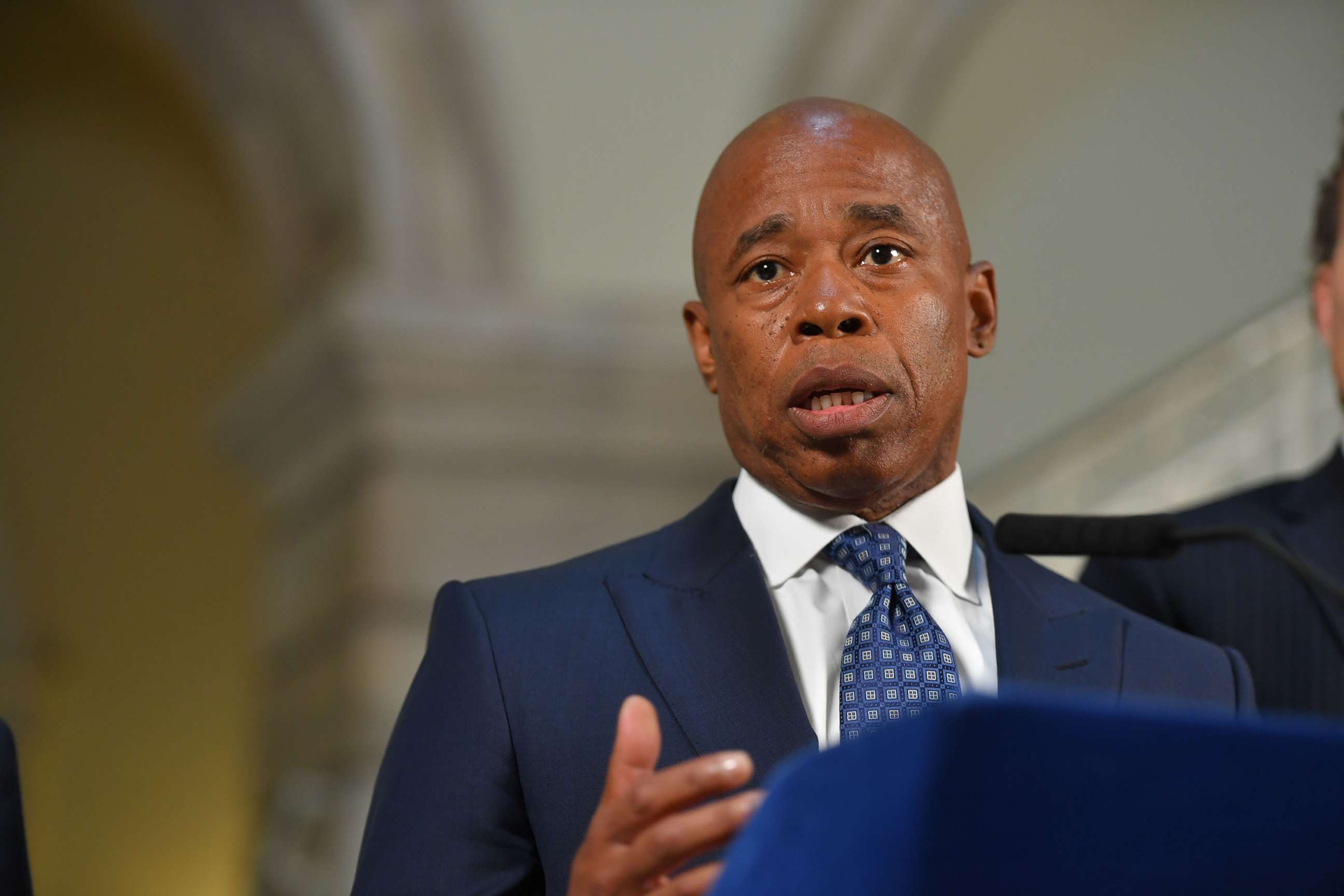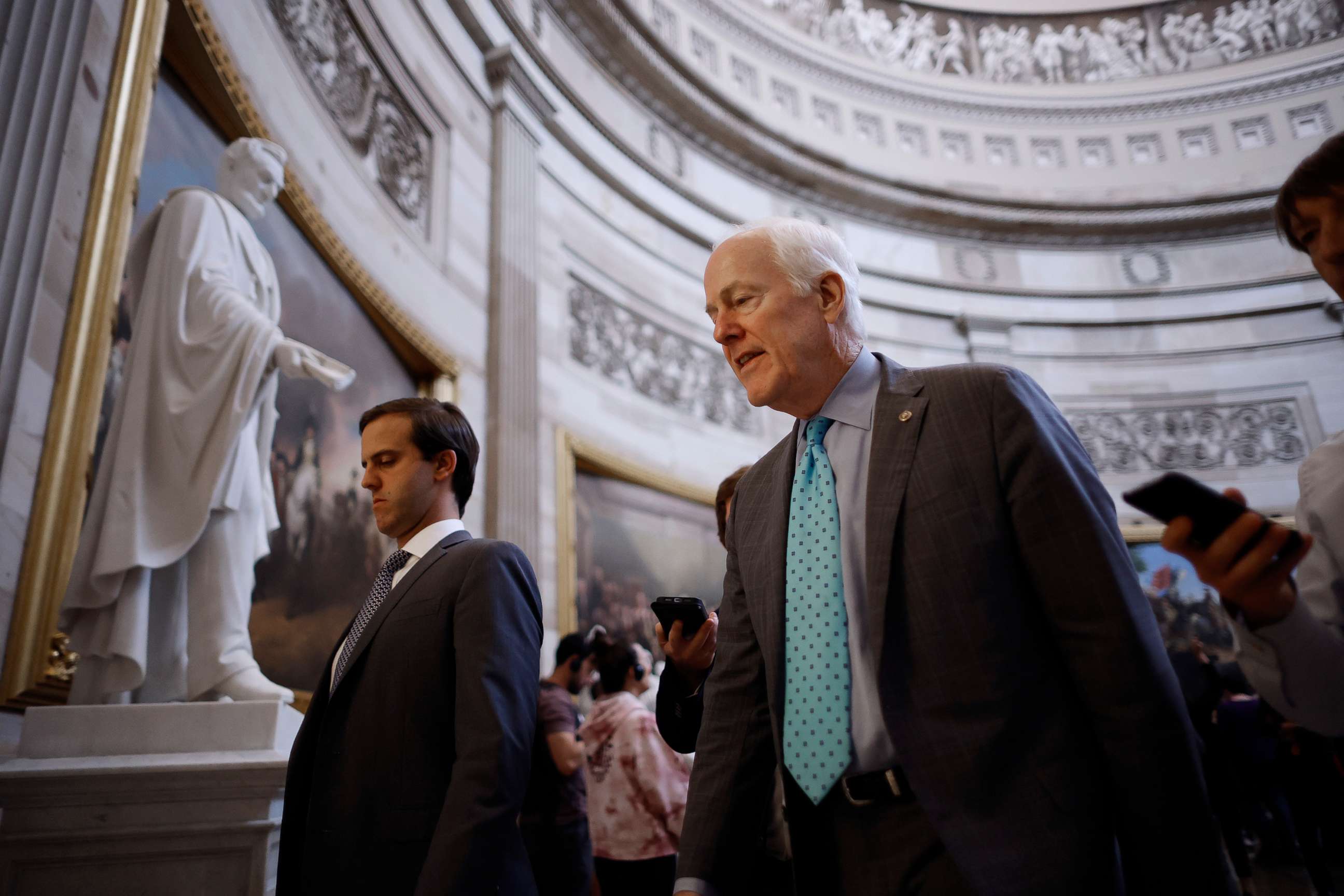Jan. 6 committee names names, amid uncertain political fallout: The Note
The latest hearing did something distinct and potentially impactful.
The TAKE with Rick Klein
Amid the wild presidential pressure campaign and wilder notion of conspiracy theories being pursued by top officials inside the federal government, the latest Jan. 6 committee hearing did something distinct and potentially impactful: It named names.
Specifically, Rep. Adam Kinzinger -- one of just two Republicans on the panel -- called out his own colleagues for their roles in trying to reverse the election results in favor of former President Donald Trump.
Evidence and witnesses suggested that Reps. Matt Gaetz, Mo Brooks, Andy Biggs, Louie Gohmert and Scott Perry pushed efforts to keep Trump in office and then requested pardons, with Reps. Jim Jordan and Marjorie Taylor Greene also coming up in that context.
A previous hearing identified a previously unreported episode in which Sen. Ron Johnson, R-Wis., appeared to try to hand a slate of phony electors to then-Vice President Mike Pence on Jan. 6. Johnson in turn said he was asked to do so by the office of Rep. Mike Kelly, R-Pa.
Kinzinger made clear one big reason for naming names was quite political. Americans need to "stand for truth, to reject the lies" everywhere -- including at the ballot box, he said.
"Not enough has changed to prevent this from happening again," Kinzinger said.

While Trump-endorsed candidates aren't winning all of their primaries, loyalty to Trump and his lies is hardly being punished by Republican voters. Kinzinger himself isn't running in the Illinois primaries next week, choosing to leave Congress at age 44 instead of trying to survive in a Trump-dominated GOP.
Brooks lost his runoff in a Senate race this week, but only after Trump ditched him; Brooks never wavered in his loyalty to Trump or his lies about the election. Two Trump-endorsed candidates for House seats got walloped in Georgia this week, but they lost to candidates who were arguably more strident in their rejection of the legitimacy of the 2020 election.
At the end of this phase of public testimony, with more hearings to come in July, it's hard to be shocked anew by anything brought forward by the committee.
But what's not surprising is no less stunning -- and that might include the hold that Trump retains on the GOP despite what's long been known about his actions after his loss.
The RUNDOWN with Averi Harper
The Supreme Court's Thursday ruling which found unconstitutional a New York law requiring gun owners to show a specific need to carry a handgun in public has sent leaders scrambling to respond.
Both New York Gov. Kathy Hochul and New York City Mayor Eric Adams previously warned of the danger of concealed weapons in the state, particularly in densely populated New York City. And they both condemned the decision to strike down the century-old provision Thursday.
"This decision isn't just reckless. It's reprehensible," said Hochul in remarks on the ruling. "It's not what New Yorkers want, and we should have the right of determination of what we want to do in terms of our gun laws in our state."

In an interview with ABC7 New York, Adams told anchor Bill Ritter that he'd already been in communication with Gov. Kathy Hochul and leaders from other large cities in the state about how to move forward in a "smart way."
"We must come up with a formidable way that stays within the Supreme Court ruling," said Adams.
The decision comes just days before New Yorkers head to the polls in primary races for governor and lieutenant governor. Predictably, Republican candidates praised the decision while Democrats decried it. Democratic gubernatorial candidate Rep. Tom Suozzi pointed to Hochul's previous coziness with the NRA in a statement on the ruling.
"There's a straight line to be drawn from Kathy Hochul's actions in Congress to this Supreme Court decision today," Suozzi said.
Votes will be tallied June 28.
The TIP with Alisa Wiersema
As many of the nation's political leaders piled on criticisms in response to the Supreme Court's gun rights decision, lawmakers in the Senate passed bipartisan gun safety legislation.
Senate Minority Leader Mitch McConnell was among the 15 Republicans to side with the entire Democratic caucus to advance the bill on Thursday night. Other Republicans who voted in favor of the legislation included Sens. Richard Burr, Susan Collins, John Cornyn, Lindsey Graham, Mitt Romney, Thom Tillis, Pat Toomey, Todd Young, Roy Blunt, Shelley Moore Capito, Rob Portman, Joni Ernst, Bill Cassidy and Lisa Murkowski.
Out of those Republicans, just two incumbents -- Young and Murkowski -- are facing reelection this year, as the issue of gun safety is becoming a salient campaign topic on both sides of the aisle.

Despite facing criticism from Republicans in his home state of Texas, Cornyn -- who isn't up for reelection until 2026 -- stood his ground about spearheading the effort.
"I don't believe in doing nothing in the face of what we saw in Uvalde and what we've seen in far too many communities. Doing nothing is an abdication of our responsibility," he said.
The legislation now heads to the House, where it is expected to be taken up on Friday before it can be signed into law by President Joe Biden.
"I am glad to see Congress has moved significantly closer to finally doing something -- passing bipartisan legislation that will help protect Americans," the president said in a written statement.
NUMBER OF THE DAY, powered by FiveThirtyEight
6. That's the number of states, including the District of Columbia, that have gun laws like the one in New York that the Supreme Court found unconstitutional on Thursday. In a 6-3 opinion, the court's Republican-appointed justices ruled that a New York law that heavily restricts the ability to carry a concealed handgun in public violates the Constitution, which means these states, in addition to New York, will now have to figure out new regulations for people who want to carry handguns in public. Read more from FiveThirtyEight's Amelia Thomson-DeVeaux on what the Supreme Court's ruling means for gun control laws in the U.S.
THE PLAYLIST
ABC News' "Start Here" Podcast. Friday morning on Start Here begins with ABC's Terry Moran outlining the new SCOTUS decision on gun rights in New York. And, Katherine Faulders reports from Washington D.C., where Jan 6 hearings continue. Then, ABC's Victor Oquendo describes new details of the Surfside condo collapse, one year after the tragedy. http://apple.co/2HPocUL
WHAT YOU NEED TO KNOW THIS WEEKEND
Download the ABC News app and select "The Note" as an item of interest to receive the day's sharpest political analysis.
The Note is a daily ABC News feature that highlights the day's top stories in politics. Please check back Monday for the latest.



